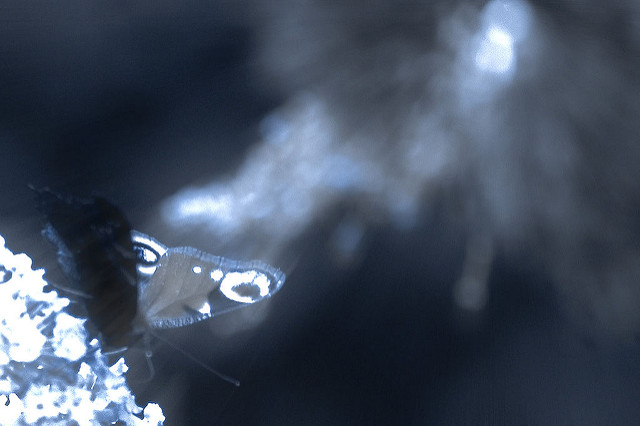“Mom, can we talk?”
I look up, surprised to see Siena standing in the doorway of the living room.
My gut reaction is that she wants to address my increasingly erratic mood swings and the headaches that often now surface as migraines—both usually at the most inopportune times.
“Of course,” I answer, taking in a deep breath in preparation to address issues about my health that I am not yet ready to hear out loud from myself.
“Mom, I can’t sleep. There are so many thoughts in my head.”
I so very want to share with her that I understand this all too well.
There is a pause and some reluctance for her to share more. I don’t know who is more nervous, her or me.
The verdict is not yet out as to whether we are all building up thicker skins as a result of living abroad in Spain—or whether we are allowing ourselves to become more vulnerable and shed them.
Siena is holding her breath, as if an exhale make anything she says more grounded reality. “The truth is that I don’t have any friends here.”
And then she proceeds to spill out more of what was likely clogging the thoroughfare in her head. “The Spanish girls, they make fun of me every chance they get.”
She looks up at me, now with courage, making sure that I hear each and every word, because there have been times in the past when I have not—and we both know it.
“Mom, I am lonely and miserable. I just want to go home.”
There is another pause as we both soak in the words, the feelings, the disappointment—and the truth of what is her life is right now.
Siena has always been the easy of the two. She has always made friends easily and effortlessly.
She has always been happy.
I silently curse myself for being so preoccupied with my own life. Navigating the daily logistics in Spain is not easy, but never should I have overlooked how a move overseas might pose immense challenges for a 10-year-old girl.
I instinctively give her a hug and hold her tighter than I likely have before.
“It’s okay to cry,” I tell her, emphatically, which I may have needed to say just as much for me as for her.
Out comes an unexpected and rare deluge of tears.
As if my emotions have no sense of time, I flashback to being her age, a place that was less full of rainbows and more full of being alone in my room, with my books, my music and myself.
“I’ll let you on a secret.” I tell her as my tears begin to fall silently. “All you have to do is to ask the universe for help and you will get what you need.”
She lets go and looks at me incredulously with big curious wet eyes that have a clarity in them. “What do you mean?”
“When I was your age, I used to wear dorky corduroy shorts and tube socks that normally only boys wore. I had braces and a haircut that looked that like an upside down soup bowl.”
Siena chuckles. “That doesn’t sound like you.”
“Well, that was me. I didn’t have many friends—and I was living in the United States, so what excuse did I have for not fitting in when we all spoke the same language and were all from the same culture?
Then one night, as I was crying myself to sleep, I looked out my window and saw the stars. For whatever reason, one star looked particularly brighter than the others, as if it was calling my attention to it. And while I was not good at asking for help from people, I decided that it was okay to ask that star for help. Because why else would it be trying to get my attention from so far away?”
Siena is completely intrigued. “So what happened?”
“Nothing happened right away. Most stars are millions of light years away, so it can take awhile. But, the next year, my braces came off, I started to dress a little bit more like a girl, I got asked to the junior high school dance—and suddenly I had a lot of girlfriends.”
“Wow. So you think my life could get better here?” I hear hope in her voice.
“Yes, absolutely, if you allow it to. Do not underestimate the power of the universe. Just one thing—and this is very important: If you just ask, nothing will likely happen. The key is to wish with all your heart.”
I know that I may have just spoon-fed my daughter a teaspoon of caca, but without a magic wand in hand, I can only give her one thing: hope.
Siena gives me a look that normally accompanies her discovery of an important scientific truth.
“Mom, that is The Butterfly Effect.”
“The what?” I ask, always stumped at her uncanny knowledge of butterflies.
“You’ve heard of it before, mom. The Butterfly Effect is the idea that a butterfly can flap its wings in one corner of the world and that little movement of air could eventually turn into a storm somewhere across the globe. Or at least that’s what Max told me.”
She pauses for a moment, as she seems to have figured something out. “Thoughts are likely just as powerful as the flutter of a butterfly’s wings. “
And then she runs upstairs, leaving me to contemplate what she just shared—that I should not underestimate the power of being a butterfly.
So I walk out to the deck and I notice that I can actually see a few stars tonight, which is unusual in the brightly lit Barcelona skyline. I breathe in and then breathe out and ask for a little help to relieve the migranes, as well as a little help for a few others that are suffering right now and could use a lift up of some sorts.
The next day as Siena gets off the school bus, she is over the moon.
“Mom, mom! You are not going to believe this, but the Spanish girls invited me to play basketball with them at lunch today! It was so awesome! You were right. The Butterfly Effect works!”
She jumps up and down and then continues, “Just before recess ended, I felt so happy. I wanted to give the universe something for helping me. So I picked up a leaf and blew it back with all the force I could to say thank you.”
A look of disbelief must likely be crossing my face.
“Mom, do you thank the universe?”
I look up at the puffy white clouds, thankful for the happiness of my daughter in this moment, while also realizing that I didn’t have a migraine today.
“Thank you for reminding me that I should be doing more of that.”
Author: Kirsten Bollen Arpajian
Editor: Renée Picard
Image: mindfulness at Flickr











Read 1 comment and reply